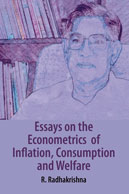New Releases...
Download Catalogue...
Download Excel Data
Download PDF Catalogue
You will get a Excel file with detail about catalogue.
You will get PDF file with detail about catalogue.
Detailed info...
Topics in Applied Economics
Tools, Issues and Institutions
G. Mythili‚ R. Hema (Eds.)
About the Book
<p>Prof. Sankar is one of the most versatile applied economists in India. He can delve into Bayesian methods of estimating production functions and tackling errors in the variables. He can painstakingly build and input-output transactions table. He can recommend pricing policies for multi-product monopolies and can carry out an expected utility analysis to understand agricultural decision-making under uncertainty. He can design economic instruments for pollution abatement and carry out a techno-economic analysis of the Indian Space programme.</p>
<p> </p>
<p><br />
His research in all these areas has been a most fruitful blend of methodological and applied work, a great achievement that has been widely recognised and appreciated both by academicians and by policy makers.</p>
<p> </p>
<p><br />
This volume is a collection of contributions made by some of his long-term associates, meant as a token of appreciation for his invaluable contributions.</p>
<p> </p>
<p>The papers here, many of them by internationally recognised academicians, either suggest refinements and expansions to the existing tool kit for economic analysis, of suggest improved methods to conceptualise issues or analyse the economic implications of delivery mechanisms and the institutions in which they are embedded.</p>
<p> </p>
<p>Most economic data contain measurement errors and how can we tackle them? How can a physician choose the optimal dose of insulin since the costs of a dosage that is too low are very different from the costs of a dosage that are too high? Do we have an understanding of the factors that are responsible for the differential growth performances of different economies? In analysing the agricultural growth would we not be better off in viewing it as a biochemical process than as a primary factors centred process? </p>
<p> </p>
<p>Can the muddled reform process in the environmental price paid for a rapid increase in agricultural production? Is there an economic rationale to value community labour spent on common property resource? How do we translate a relative view of absolute poverty into working tools to enable measurement and policy interventions? </p>
<p> </p>
<p>These are a sampling of the kind of issues dealt with. This volume would be a valuable reference for students, academicians and policy makers.</p>
About the Author(s) / Editor(s)
<p><strong>G. Mythili </strong>is Associate Professor at the Madras School of Economics, Chennai. Currently she is visiting Indira Gandhi Institute of Development Research at Mumbai. Having obtained Ph.D. in Econometrics discipline, she visited University of California at Berkeley during 1990-91 as a Ford Foundation Post Doctoral Fellow. She was associated with many research projects including Farm Management Studies, Farm Production Risk, Globalisation of Indian Agriculture and Environmental Problems related to Energy Sector.</p>
<p> </p>
<p>She has co-authored a book on Farm Production Decision under Uncertainty. Recently she visited University of Peradeniya at Sri Lanka for nine months as a Visiting Fellow in Environmental Economics. She was a member of Course Curriculum Committee of World Bank/MOEF Capacity Building in Environmental Economics. She has to her credit many journal articles and research reports.</p>
<p> </p>
<p> </p>
<p><br />
<strong>R. Hema</strong> is Associate Professor at the Madras School of Economics. Her Doctoral dissertation was on optimal pricing in the electricity sector. Subsequently she has been working on various topics relating to the electricity sector - financial performance, regulatory mechanisms, institutional restructuring. She visited the University of California at Berkeley during 1991-92 as a Ford Foundation Post-Doctoral Fellow. Was associated with a programme on International Comparison of Electricity Regulation at the Energy Institute there.</p>
<p> </p>
<p>She has been on the faculty of Tata Energy Research Institute, New Delhi, Madras Institute of Development Studies, Chennai and adjunct faculty at DePaul University, Chicago. She has been associated with many studies on the power sector that were sponsored by the Asian Development Bank, Power Finance Corporation, Tamil Nadu Electricity Board, Planning Commission etc. and also with a study on Social Exclusion, sponsored by the International Labour Organisation. She has made contributions to the Vision 2020 Document for the Union Territory of Pondicherry and the Tamil Nadu State Development Report.</p>
Contributors
<p><strong>Arnold Zellner</strong><br />
is H.G.B. Distinguished Service Professor Emeritus of Economics and Statistics at the Graduate Business School of the University of Chicago. He also spends considerable time as Professor at the Department of Agriculture and Resource Economics of the University of California at Berkeley. Zellner has made very significant contributions in the area of Econometrics and Statistics, and is an authority in Bayesian techniques. He was elected President of the American Statistical Association in 1991 and he is the Founder and first elected President of the International Society for Bayesian Analysis. He is the co-founder and co-editor of the Journal of Econometrics. He was the founding editor of the ASA Journal of Business and Economic Statistics. He has served on the Editorial Board of Journal of Economic Literature. He has published over 20 books and he has to his credit about 250 papers published in a wide range of leading journals and edited volumes.</p>
<p> </p>
<p><br />
<strong>Raja J. Chelliah</strong><br />
is the Founder-Chairman, of the Madras School of Economics. He is a fiscal economics expert and his authority and contributions in this area are such that his name is immediately associated with taxation in India. He was Chairman of the Tax Reforms Committee set up by the Government of India in 1991 and was Chairman of the Tax Reforms and Revenue Augmentation Commission set up by Government of Tamil Nadu in 2002. He was fiscal adviser at the Ministry of Finance, GoI, in 1993, was a member of the Union Planning Commission and a member of the Ninth Finance Commission. He has been chief of the Fiscal Affairs Division at the Fiscal Affairs Department of the International Monetary Fund and was a consultant to the Government of Papua New Guinea on Centre-Provincial Financial Relations. He was the Founder-Director of the National Institute of Public Finance Policy, New Delhi and subsequently became its Chairman. His book on fiscal economics was a popular textbook in Indian colleges and recently he has prepared a primer on VAT.</p>
<p> </p>
<p> </p>
<p><strong>Paul P. Appasamy</strong><br />
is Professor at Madras School of Economics and Member-Secretary of the Centre of Excellence in Environmental Economics under the Ministry of Environment and Forests. His areas of specialisation and research interests are in technological and environmental planning, natural resource economics and urban economics. He was Director at Madras School of Economics and has been Director at the Madras Institute of Development Studies. He has done consulting work for the U.S. Environmental Protection Agency in Washington D.C., Indian National Trust for Art and Cultural Heritage, Chennai, UN Centre for Human Settlements, Nairobi, Swedish International Development Cooperation Agency, and the United Nations Development Programme. He is an expert on water, environment and urban studies and has completed several projects in these areas, funded by national and international agencies. He has 27 publications in Indian and foreign journals.</p>
<p> </p>
<p> </p>
<p><strong>V.K. Chetty</strong><br />
is a statistician/economist. He is currently a health economist at the Boston Medical Center. He has been Professor of Economics at Columbia University, New York and the Indian Statistical Institute, New Delhi. His current research interests are in medical decision-making, taking appropriate costs into account and reducing medical errors. At present, he is working on cost-effective management of Diabetes, using sequential statistical methods and complex adaptive systems approach. He has been a consultant to the United Nations and the World Bank. He has published many papers in leading journals and prepared about nine technical reports.</p>
<p> </p>
<p> </p>
<p><strong>Nagesh S. Revankar</strong><br />
is Professor of Economics and Director of Graduate Studies at the State University of New York at Buffalo, where he joined the Department of Economics as Assistant Professor in 1967. His early work is in the area of production theory and consumer analysis, and his subsequent research interests have been in the area of econometrics. He has several contributions to his credit which have appeared in various leading journals. He holds a Master's degree in Statistics from the University of Pune, India.</p>
<p> </p>
<p> </p>
<p><strong>M. Salih</strong><br />
is currently Director of Decision Science for Digital Matrix Systems. This group is primarily devoted to developing credit scores for lending institutions throughout the US. He did his Ph.D. work under the supervision of Prof. Revankar in the State University of New York at Buffalo. Shortly after his graduation in 1993 he worked as Adjunct Faculty there and taught several economics and statistics courses. In 1996, he moved to Dallas, Texas, to work for FirstPlus Financial, which is a second mortgage lending company, in the risk management area. He was primarily doing loss and prepayment forecasting and developing default and pricing scores. Subsequently, he worked for Digital Matrix Systems, Ocwen Financial Corporation, The Associates and Citigroup in the statistical modeling and credit scorecard development areas.</p>
<p> </p>
<p> </p>
<p><strong>K.L. Krishna</strong><br />
headed the Delhi School of Economics for many years and is currently an Honorary Research Advisor at the Centre for Development Economics, Delhi School of Economics. Also a long-term professional associate of U. Sankar, he has been instrumental in developing the curriculum for "Econometrics" in India. He is noted for his significant contribution in the application for Econometrics to industry, trade and macroeconomics. He has served on the Editorial Board of journals like Indian Economic Review and was the Founder Managing Editor of Journal of Quantitative Economics. He has also served on many national and international committees. He was the President of the Indian Econometric Society in early 1990s.</p>
<p> </p>
<p> </p>
<p><strong>A. Vaidyanathan</strong><br />
is Emeritus Professor at the Madras Institute of Development Studies, Chennai. He is a leading authority in India on irrigation issues. He has made notable contributions in the area of water pricing, water resource management, irrigation pricing etc. He has been serving as the President of Indian Society of Agricultural Economics. He has visited the Institute of Development Economics, Tokyo, as a Research Fellow. He was a National Fellow of the Indian Council of Social Science Research during 1996-97. He has served as a Member of the National Planning Commission, the Prime Minister's Economic Advisory Commission and also on many committees of national and international importance.</p>
<p> </p>
<p> </p>
<p><strong>Gopal K. Kadekodi</strong><br />
is currently Director of the Institute for Social and Economic Change. He has been Research Professor at the Centre for Multi-Disciplinary Development Research, Dharwad and a Professor at the Institute of Economic Growth, New Delhi. He was Visiting Professor at Erasmus University, Rotterdam. His areas of research include Common Property Resources Valuation, Energy, Natural Resource Accounting and Economic Development. He has been the President of the Indian Society for Ecological Economics. He is Editor, Journal of Social and Economic Development, and on the Editorial Boards of Environment and Resource Economics, The Pacific and Asian Journal of Energy and Journal of Quantitative Economics. He has published over 10 books and more than 100 articles in national and international journals.</p>
<p> </p>
<p> </p>
<p><strong>S. Subramanian</strong><br />
is Professor at the Madras Institute of Development Studies, Chennai. His principal areas of research concern are collective choice theory, aspects of social and economic measurement, and development economics. He is the editor or co-editor of four books, and his work has been published in journals like Social Choice and Welfare, Theory and Decision, Journal of Development Economics, and Economics and Philosophy.</p>
<p> </p>
<p> </p>
<p><strong>Taradas Bandyopadhyay</strong><br />
is Professor of Economics at the University of California, Riverside, U.S.A. He taught in various universities in the U.S., U.K., Canada and India. His main area of expertise is economic theory, particularly the analysis of individual and social choice, and mathematical economics. He has a long list of publications in the leading professional journals such as Review of Economic Studies, Journal of Economic Theory, Economic Journal, Economic Theory, Journal of Mathematical Economics, Social Choice and Welfare, Mathematical Social Sciences and Journal of Mathematical Psychology.</p>
<p> </p>
<p> </p>
<p><strong>Kaliappa Kalirajan</strong><br />
is currently a Professor at the Foundation for Advanced Studies on International Development and the National Graduate Institute for Policy Studies, Tokyo. He also holds an adjunct professorship at the Australian National University, Sophia University, and the Madras School of Economics. His areas of specialisation are Econometrics, Development Economics and Macroeconomics. He has made original contributions in the field of Econometric Analysis of the Frontier Production Function and its application in many areas. He has developed disequilibrium models using frontier production functions and applied to macro-econometric modeling. He has to his credit several books and papers in international refereed journals.</p>
<p> </p>
<p> </p>
<p><strong>Sreejata Banerjee</strong><br />
is a Visiting Professor of Great Lakes Institute of Management at Chennai and also teaches Economics and Finance for Herriot Watt University's MBA programme offered at International Institute of Business Management, Chennai. She is an alumni of Jadavpur University. She was Prof. Sankar's student for her Ph.D. programme at the University of Madras. She has taught financial economics at some of the leading colleges in Chennai and has published research articles in India and abroad on capital markets and international finance. She is currently working on issues of empowerment in Microfinance.</p>
<p> </p>
<p> </p>
<p><strong>V. Anuradha</strong><br />
is currently working for a multinational company in Bangalore. She worked for her Ph.D. under the guidance of Prof. Sankar and is a product of the Madras School of Economics. She has collaborated with Prof. Sankar on projects funded by World Resources Institute, UNDP and the World Bank. She worked as Business Analyst at GE Capital International Services at New Delhi.</p>
Print Brochure...
Print as it is
Customised brochure
You will get a printout of what you see on your screen under 'Detailed Info'(Uneditable).
You will have the opportunity to edit the text and adjust the extent to fit on A4 size sheet or more accordingly as you desire. Plus, you can download the edited/customised Brochure or simply print it (CTRL + P).


-web-194.jpg)
-front.jpg)


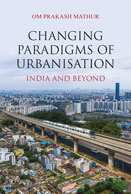






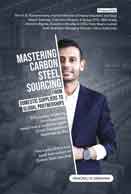


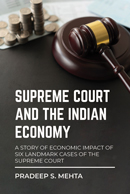
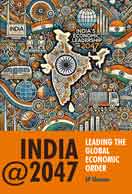


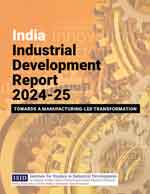









-COVER-web-194.jpg)





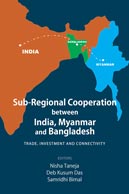






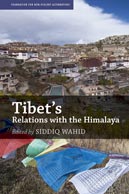



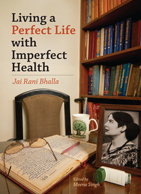












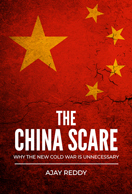
.jpg)






